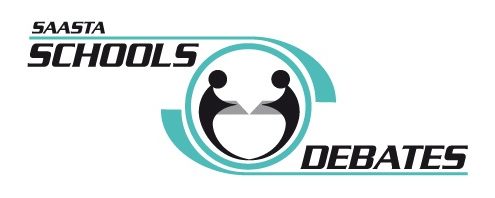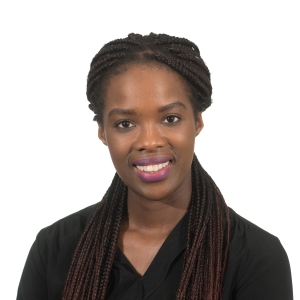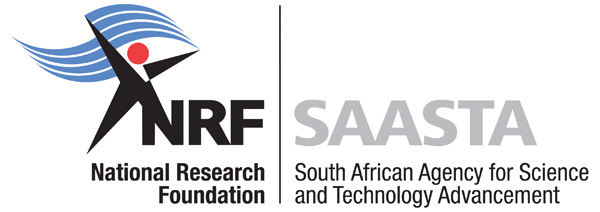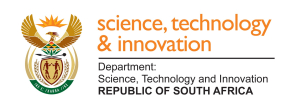
The SAASTA National Schools Debates Competition is one of the flagship projects that provides learners with an opportunity to develop their research, critical thinking, and information literacy skills, as well as their ability to work as a team to present logical arguments. Amongst the objectives of the competition is to build science communication ambassadors out of learners through researching and debating of high-level scientific topics. The competition, established in 2008 in three provinces, has since expanded to include all nine provinces.
- WHO MAY ENTER?
- HOW DOES IT WORK?
- HOW TO ENTER?
- TOPIC FOR SUBMISSION
Learners from grades 9 to 11 who are:
- Interested in developing their scientific research and information literacy skills;
- Critical thinkers; and
- Willing to work as a team to present logical, clear arguments.
Each team consists of five learners. At least two of the learners must take science-related subjects at school.
_________________________________________________________________________________________________________________________
Call for entries opening date : 1 March 2022
Closing date for registration: 8 April 2022
Closing date for video/voice entries: 6 May 2022
The National Schools Science Debates structure is not based on proposition/opposition presentations, but allows debaters to engage with one another and move toward a common resolution. Perhaps one of the most interesting features is the mini-imbizos by means of which learners get to interact with one another and share ideas through breakaway discussions and by making use of social media.
Phases of the competition
a) Online and manual registration will be opened to all schools, with there being no limitation to the number of schools per province. Schools will complete the online or manual registration form and submit to SAASTA before the closing date. Learners will prepare opening and closing statements of 2 minutes each in a video or voice note format and submit via WhatsApp or online before the closing date. Entries from districts will be adjudicated and the top 10 schools per province will progress to the provincial workshops and tournaments.
b) Provincial Workshop and Tournaments The top 10 schools per province will attend an online workshop on the debating style, and then compete in the provincial tournaments. A new topic linked to the National Science Week theme will be provided to the learners to prepare accordingly for the tournament.
c) National Tournament Provincial winners will compete at the National tournament for the title of the 2021 National School Science Debates champions.
- A reversed data billing system or a zero-rated platform will be used to support participation by all schools.
- Certificates will be awarded to all participants. Educational prizes, trophies and medals will be awarded to winning teams at different levels of the competition.
To enter the competition each school must complete the entry form and submit it to debates@saasta.ac.za or complete the online entry form.
Call for entries opening date : 1 March 2022
Important dates
Implementation phase | Mode of delivery | Date |
Registration | Online | 1 March – 8 April 2022 |
Phase one competition | Submissions to be done Online | 6 May 2022 |
Results of top 10 schools per province | Communication will be sent to schools | 6 June 2022 |
Provincial workshops | Online | 6 August 2022 |
Provincial tournament | In Person | 20, 27 August, 3 September 2022 |
National tournament | In Person | 5 October 2022 |
In order to participate in the first phase of the competition, teams must prepare and submit an opening and closing statement (as voice note or video) on the following topic:
The Importance of Indigenous Knowledge Systems in Responding to Climate Change
Extreme weather events and changes in climate patterns around the world are showing us the severity of the impact of climate change. Climate change is a complex problem. There is no simple solution and many people need to work together in an interconnected way to contribute to solutions. Scientists are conducting research to generate new knowledge and explore new ways to mitigate and adapt to climate change, and limit its negative impact. Politicians and policy-makers are developing policies to support solutions to climate change. The indigenous knowledge that is collected, developed and held by local indigenous communities is also important to develop local solutions to adapt and improve resilience to climate change. Considering your chosen debating perspective, how should indigenous knowledge systems be incorporated into climate science and solutions to climate change?
- Guidelines on the topic and additional research information, as well as details on how to submit the videos or voice notes will be provided to interested schools who submit an entry form.
- We would also like for you create and include an automated email to acknowledge receipt of the entry form/ registration for schools to received once they have registered. I will send you the info for this.
The Four perspectives are
Science and technological developments should address the needs and challenges of greater society. From this perspective, some points to consider are:
- What can/will the science or technology in question practically offer or do for the individual and/or society?
- What are the benefits to larger society?
- What are the risks or potential fallout of failure?
- Does the potential application address short-term needs or have long-term benefits?
- Is it sustainable?
- Will the development of the particular technology require or drive further scientific and technological advancement?
Research and development in science and technology requires significant financial investment but can lead to new technology that has larger economic benefits. From this perspective, some points to consider are:
- What level of investment into research and development of technology is required?
- What will it cost the individual and/or society to benefit from the science and technology?
- What are the economic benefits?
- Does it support growth of developing economies?
Developments in science and technology are influenced by and impact cultural values and societal dynamics. From this perspective, some points to consider are:
- What social or cultural issues exist around the scientific development?
- Are there ethical or moral issues to consider?
- Is the advancement of the science and implementation of technology hindered or supported by cultural beliefs/ attitudes?
- Will the advancement of science impact cultural beliefs and attitudes and bring about cultural evolution?
- Does the science and technology advance society?
Scientific developments and implementation of technologies take place within a political environment. From this perspective, some points to consider are:
- Who owns the scientific knowledge and products?
- Are there issues of equity?
- Who is involved in the decision-making process of developments in science and technology?
- Are governments accountable for their decisions around the science and technology they develop?
- Can society be involved in the process of scientific research and technology development
- Top young learners compete in the National Science debate competition
- SAASTA school science debate 2018 – The Journey
- Learners awarded for their dedication
- Bright young minds have a lot to say about nanomedicine
- Media Release : National Schools Debates 2017 provincial competitions to focus on Square Kilometer Array Telescope
- Schools Debates winners jet off to New York
- SAASTA National Schools Debate Competition: Finding creative solutions to our energy problem
- High school learners debate science’s role in health challenges

Lithakazi Masilela
debates@saasta.ac.za
+27 (0)12 392 9300

 The South Africa Agency for Science and Technology Advancement (SAASTA) is a business unit of the
The South Africa Agency for Science and Technology Advancement (SAASTA) is a business unit of the 